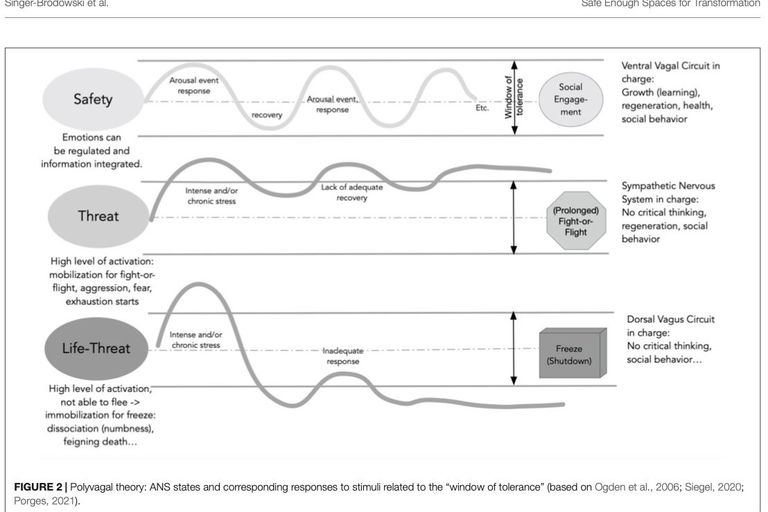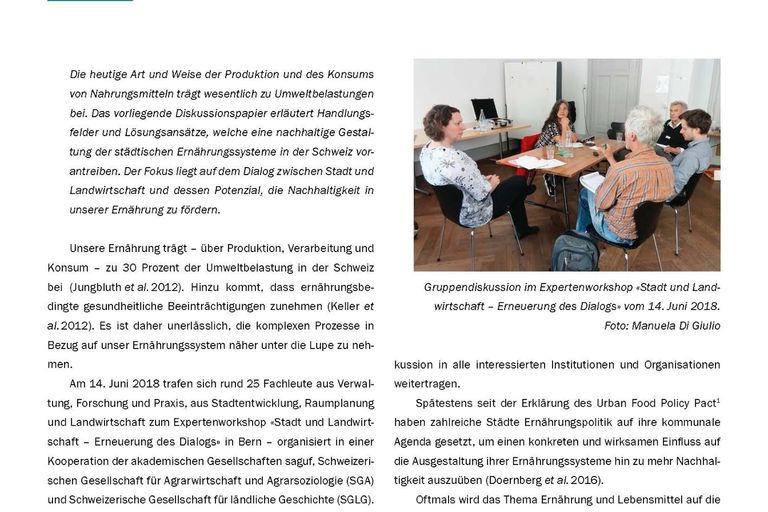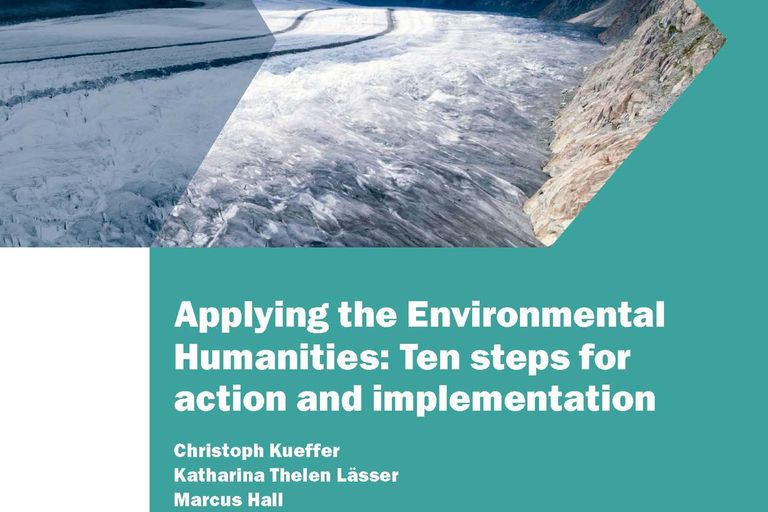saguf-Strategie 2024-2028: Engagiert für eine nachhaltigkeitsorientierte und transformative Wissenschaft
Mit ihrer Strategie 2024-2028 engagiert sich die saguf für die Stärkung einer nachhaltigkeits-orientierten und transformativen Wissenschaft in der Schweiz. In vier strategischen Stossrichtungen entwickelt und reflektiert sie innovative methodische Ansätze, intensiviert den Dialog mit der jungen Generation, baut starke Partnerschaften im Wissenschaftssystem auf und stärkt die Sichtbarkeit der transformativen Nachhaltigkeitsforschung in der Praxis. Die saguf schlägt Brücken zwischen verschiedenen wissenschaftlichen Ansätzen und Disziplinen, zwischen Institutionen und Akteuren aus allen Sprachregionen der Schweiz - und lädt zur aktiven Mitgestaltung der Transformation ein.
Image: saguf
Facing Crises of Unsustainability: Creating and Holding Safe Enough Spaces for Transformative Learning in Higher Education for Sustainable Development
The multiple crises of unsustainability are provoking increasing stress and unpleasant emotions among students. If higher education is to fulfill its mission to support transformation processes toward sustainable development, it must adapt its pedagogical approaches to help students deepen their critical thinking and empower them to engage in these transformation processes. The manuscript explores how learners and educators can cultivate engaged critique by acknowledging their own embeddedness in neoliberal dynamics and opening up so-called transformative spaces for institutional change. Finally, recommendations for educational practices in higher education for sustainable development are offered.
Image: sagufSustainability-Oriented Transformative Learning and Teaching in Higher Education
To contribute to sustainability transformations, learning and teaching at higher education institutions must become trans-formative. A group of experts met for a one-day workshop organized by the Swiss Academic Society for Environmental Research and Ecology (saguf). This paper presents key findings from the discussion.
Image: sagufTowards shared research
Intercultural, interdisciplinary, and transdisciplinary research interfaces confront researchers with considerable challenges. The book portrays how scholars from different disciplinary and geographical origins and at various academic career stages strive for a more inclusive and better understanding of knowledge about African environments.
Image: saguf
Diskussionspapier: Stadt und Landwirtschaft im Dialog
Die heutige Art und Weise der Produktion und des Konsums von Nahrungsmitteln trägt wesentlich zu Umweltbelastungen bei. Das vorliegende Diskussionspapier erläutert Handlungsfelder und Lösungsansätze, welche eine nachhaltige Gestaltung der städtischen Ernährungssysteme in der Schweiz vorantreiben. Der Fokus liegt auf dem Dialog zwischen Stadt und Landwirtschaft und dessen Potenzial, die Nachhaltigkeit in unserer Ernährung zu fördern.
Image: saguf
Applying the Environmental Humanities: Ten steps for action and implementation
There is a growing perception in society and among decision makers that addressing environmental problems requires fundamentally new approaches. This report is based upon a survey of practitioners who work in the field of Environmental Humanities and summarizes ten steps for action and implementation.